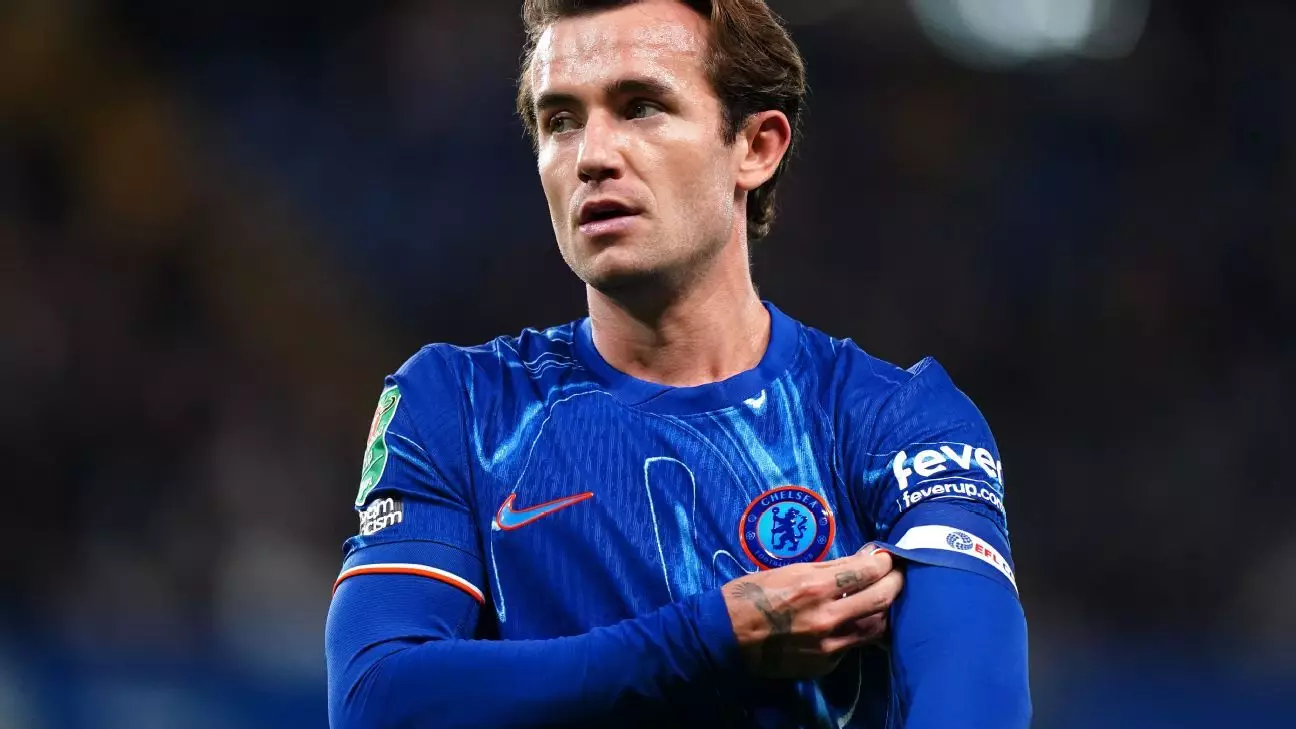Enzo Maresca, Chelsea’s current manager, has expressed a sense of remorse regarding the circumstances surrounding Ben Chilwell’s limited playing time this season. Despite Chilwell’s impressive past, including 70 Premier League appearances over four seasons, his role has diminished dramatically since Maresca took the helm. The 28-year-old full-back has found himself sidelined, with just a single Carabao Cup match to his name this campaign. This situation has raised questions about player management and the implications of coaching decisions within a high-stakes environment like Chelsea Football Club.
Maresca’s recent statements underscore his understanding of the player’s plight. He acknowledged Chilwell’s professionalism and commitment, noting, “I feel shame because of that situation.” However, the sentiment was quickly tempered by the realization that decisions about playing time rest squarely on his shoulders as the manager. The omission of Chilwell from matchday squads relates not only to his capabilities as a player but also to the tactical flexibility offered by others such as Malo Gusto and Reece James.
Maresca’s philosophy appears to favor players who can adapt to various roles during a match, as he explicitly stated, “I struggle to see Ben doing different kind of things.” This perspective raises interesting questions about the evolving nature of football tactics and the demand for versatility among defenders. It reveals a possible departure from traditional roles, which may leave established players like Chilwell in limbo.
The Search for Balance
The dynamics at play within the Chelsea squad also highlight a broader challenge—finding a balance between depth, adaptability, and loyalty to players who have historically been important to the club. As Chilwell faces uncertainty, reports have emerged regarding another young defender, Renato Veiga, who is said to be dissatisfied with his own playing time. While Maresca indicated that there is no immediate move on the horizon for Veiga, he also acknowledged the complexities of player happiness in relation to club strategy.
In this context, the emphasis on a player’s ability to perform in a variety of positions, as demonstrated by Veiga’s success with the Portuguese national team, complicates traditional narratives of player development and role specialization. Such shifts might seem beneficial in a tactical sense, but they often come at the cost of player morale and retention.
Currently, Chelsea faces an uphill battle on the pitch, marked by five matches without victory in the Premier League. The impending match against Bournemouth looms large, placing additional pressure on Maresca to not only secure points but also to navigate the emotional landscape of his squad. If he doesn’t find a way to reintegrate players like Chilwell and maintain a harmonious dressing room, the ramifications could ripple far beyond the current season, influencing recruitment and player retention strategies moving forward.
The situation at Chelsea epitomizes the delicate balance between managerial strategy and player welfare. As Maresca continues to refine his vision for the team, the futures of established players like Chilwell and promising talents like Veiga hang in the balance, both pivotal to Chelsea’s identity and future prospects.


Napsat komentář